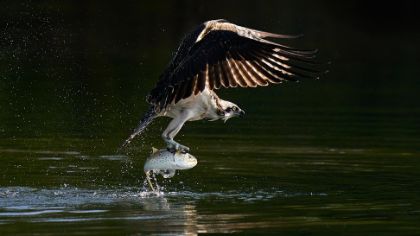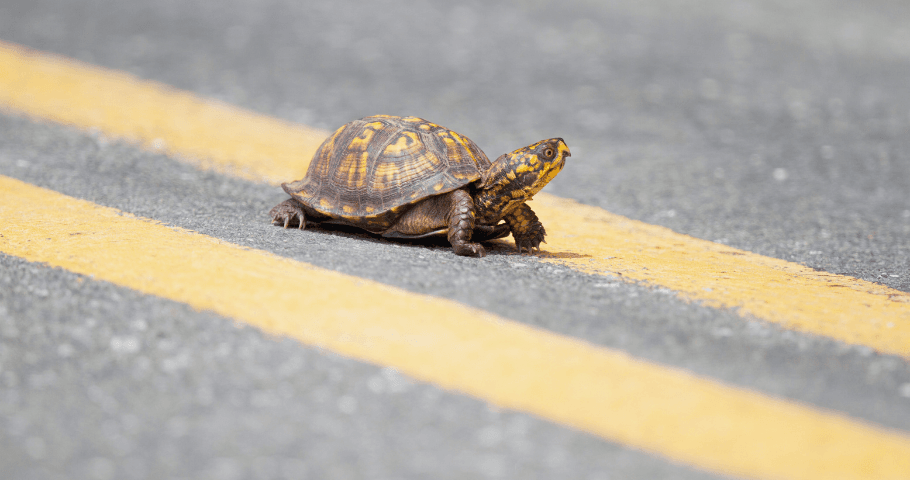
November 2020
The monthly Audubon Eagle Eye Advocacy Updates will provide you with simple actions you can take to help foster a cleaner, healthier planet along with local and national environmental news. Advocacy to protect birds and wildlife is a top Audubon priority and this work goes beyond testifying on their behalf on Smith Hill. Year round, we are working with our community partners and Rhode Island leaders to ensure the environment is a priority. These updates will keep you informed and ready to take action when the legislative session is upon us. As the newsletter continues, we are very interested in your suggestions and questions. Please send them to Audubon Senior Director of Policy Meg Kerr at mkerr@asri.org.
Sign up to get the Audubon Eagle Eye Advocacy Update in your inbox!
The Election is Behind Us!
President-elect Biden and Vice President-elect Harris have announced their top priorities: COVID-19, economic recovery, racial equality and climate change. These priorities align perfectly with Audubon’s long-standing positions and reflect the attention to racial equality and climate change that are featured in Audubon’s newly adopted strategic plan.
In the House of Representatives, Speaker Mattiello was defeated at the polls and Majority Leader Shekarchi has the support of his members to replace him. Representative Blazejewski (District 2, Providence) has been selected as the new Majority Leader. Representative Blazejewski sponsored the Act on Climate bill in 2019 and 2020. Click here to read more.
Quick Tips For Getting Your Yard Ready For Winter Birds
3. Install bird feeders! Consider accessibility for maintaining, filling and cleaning through winter snow and ice. If you should need to replace the rope or chain, make sure you can easily access it. Here are some things to think about when outfitting your yard with bird feeders:
- Cover. Select a covered feeder to protect seed and feeding perches. The cover should extend several inches over the edge of the feeder to ensure protection from winter storms.
-
Placement. Ideally, winter bird feeders should be placed in sheltered locations out of the most severe winds. Feeders closer to the house will help, and also keep the birds visible for indoor bird watching. At the same time, feeders should be located near a protective area such as hedges or a brush pile to offer birds safety from predators. To minimize window collisions, place your bird feeders 3 feet or less from your house, or farther than 30 feet from big windows. Use window clings or other techniques to help birds avoid the glass.
-
Larger capacity. For YOUR convenience, large capacity feeders work well for winter feeding because they do not need to be refilled as frequently. Be sure that the seed is protected from moisture, otherwise it may grow mold or fungus before it is consumed. Covered feeders with large capacities are suitable, but open platform feeders should be emptied and refilled daily to prevent mildew and spoilage.
-
Clean. Because natural food sources are scarcer in the winter, more birds may be looking for an alternative food source. Backyard feeders will need to be cleaned and sterilized regularly. Proper cleaning will minimize mold, mildew and other unhealthy conditions that could foster disease among backyard bird populations. When cleaning, discard soggy seed or seed encased in ice, and let the feeder dry completely before refilling. Be sure to wipe down perches, poles and other parts of the feeder as well.
-
The Audubon Nature Shop in Bristol offers a wide range of feeders and seed, and experts to help you get started. Shop online by clicking here!
Continued Good News for Menhaden
This commitment was put into action in October when the Atlantic States Marine Fisheries Commission’s Menhaden Management Board set the coastwide fishing quota for 2021 – 2022. The Board adopted a 10% overall decrease in the quota. Conservation groups like Audubon, working in tandem with the recreational fishing communities, pushed for quotas that would have had no more than a 50% risk of exceeding the target ecological reference point. The decision reached by the Commission was very close to an optimal conservation outcome and will result in leaving an estimated 75 million extra menhaden in the water each year for the next two years.
Not everyone was satisfied with the Commission’s decision to “come very close to” the agreed upon conservation outcomes. An opinion column by Charles Witek in the newsletter of the RI Saltwater Anglers is very critical of the decision due to the Commission’s compromise on the targets.
Governor Raimondo Commits to up to 600 MW of additional Offshore Wind
Rapidly decarbonizing the state’s energy sector is critical to addressing the climate crisis. In October, Governor Raimondo announced that Rhode Island will pursue a competitive request for proposals to procure up to 600 MW of new offshore wind energy. As we all know, Rhode Island launched the offshore wind industry with North America’s first operational offshore wind farm off Block Island. In 2019, the state received approval for the 400 MW Revolution Wind offshore project. This latest effort continues Governor Raimondo’s goal of meeting 100 percent of the state’s electricity demand with renewable energy resources by 2030.
Advocating for Balancing Offshore Wind Development with Protection of Birds and Wildlife
It opens with the following statement that summarizes the intent succinctly:
“Our organizations strongly support development of environmentally responsible offshore wind energy as a key to the critical transition away from harmful fossil fuels to a clean energy economy. Offshore wind power provides a tremendous opportunity to fight climate change, reduce local and regional air and water pollution, and grow a new industry that supports thousands of well-paying jobs. While the need for this transition is only becoming more urgent, we can and must ensure that all U.S. offshore wind development is guided by science-based measures to avoid, reduce, and mitigate impacts on valuable and vulnerable wildlife.”
Action You Can Take
Make sure the Green Bond gets a vote!!
In early September the leadership of the General Assembly and the Governor’s office issued a joint press release stating that they will have a special session after the November election to adopt a budget and approve bonds. Once approved the bond will go to the voters in a special election. We now need to hold them to that promise.
The $69 million 2020 Green bond includes the following components:
- State Beaches, Parks and Campgrounds: $40 million for capital improvements, likely to include upgrades at Goddard Park Beach, Roger Wheeler Beach, Scarborough State Beach, Misquamicut State Beach, Brenton State Park, and state campgrounds.
- Clean Water and Drinking Water: $15 million in matching funds for the Clean and Drinking Water State Revolving Funds. These matching funds will unlock close to $74 million in federal funds.
- Local Recreation: $4 million in matching grants to create new and improve existing community parks and recreation facilities.
- Natural and Working Lands: $3 million to conserve forested land and farmland.
- Municipal Resilience Program: $7 million to help communities restore and improve resiliency of vulnerable coastal habitats, rivers and stream floodplains and infrastructure.
Please contact your state senator and state representative to ask for action on the 2020 Beach, Clean Water and Green Bond. We would like to see the bond approved as it was presented by the Governor.























